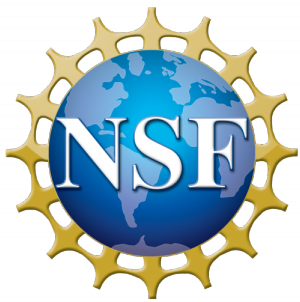September 1st, 2022 - August 31st, 2025 | PROJECT
Engineering is arguably one of the most critical skills in any society, from building bridges and homes, to designing cell phones and life-saving medical devices. Yet many Americans do not consider engineering to be essential or relevant to their everyday lives, and may even question its positive impact on society. While there have been gains in the number of women and underrepresented minorities in STEM professions over the past few decades, their numbers in the field remain disproportionately low. The Built World integrated multimedia and research project therefore aims to expand access to engineering content through the lens of “inclusive engineering,” which highlights how problem-solvers of all ages, genders, backgrounds, and perspectives approach and overcome challenges to innovate. The project applies this concept through the creation of Built World, a three-hour documentary series for broadcast on PBS stations nationwide, and a complementary interactive escape game streamed live on Twitch, where individuals of all ages and backgrounds can play and solve engineering challenges together. There is a need for effective remote and virtual interaction to support informal STEM learning, and live streaming game platforms present a promising approach to filling this need. Built World is poised to advance the field through: (1) content - creating high-quality inclusive engineering content across multiple platforms to reach a wide audience (Built World documentary, digital reporting and short form videos, community outreach campaign); (2) applied research - designing and studying how live-streaming, collaborative platforms can serve as safe and inclusive spaces for engineering learning; and (3) best practices - exploring how audiences engage with inclusive engineering on different platforms—a traditional documentary format (Built World) versus an interactive, collaborative space (Twitch game)—and identifying what learning outcomes might be expected on each.
A three-phase research design aims to understand what motivates users to engage with STEM content on Twitch; how to define and measure learning outcomes associated with the platform; and how to mitigate the risk of toxic environments in online communities by fostering safe spaces for a diversity of gamers. Phase 1 informs the initial design of the Twitch game and audience interaction strategies and seeks to answer: What is the best way to measure informal learning on Twitch? What is the best way to design a Twitch channel to create an inclusive space while optimizing learner engagement? Phase 2 is the core focus of the research and uses a semi-experimental design to answer questions such as: Is there evidence of learning on Twitch, and what type of learning is happening? What is the digital culture that emerges? Phase 3 assesses the pairing of the documentary series with the Twitch game to maximize informal STEM learning and is guided by questions such as: How does inclusive engineering content presented on two platforms (Twitch game and Built World series) mediate learning outcomes? How does inclusive engineering content presented on two platforms shape learners’ experiences of inclusivity and belonging? Knowledge generated through the Built World project will offer tools and best practices to other STEM media producers so that they may also leverage live streaming platforms for learning.
Project Website(s)
(no project website provided)
Project Products
2023 AISL Awardee Mini-Poster: 2215269
Team Members
Chris Schmidt, Principal Investigator, WGBH Educational FoundationFunders
Funding Source: NSF
Funding Program: Advancing Informal STEM Learning (AISL)
Award Number: 2215269
Funding Amount: $2,996,941.00
Tags
Access and Inclusion: Ethnic | Racial | Women and Girls
Audience: General Public | Museum | ISE Professionals | Scientists
Discipline: Engineering
Resource Type: Project Descriptions
Environment Type: Broadcast Media | Games | Simulations | Interactives | Media and Technology

